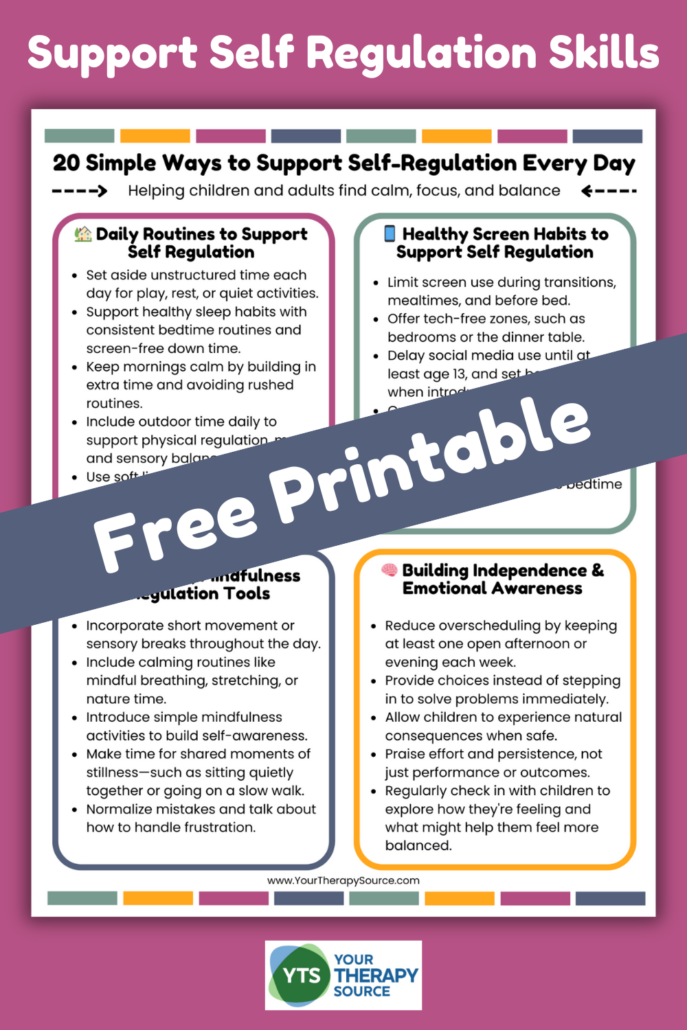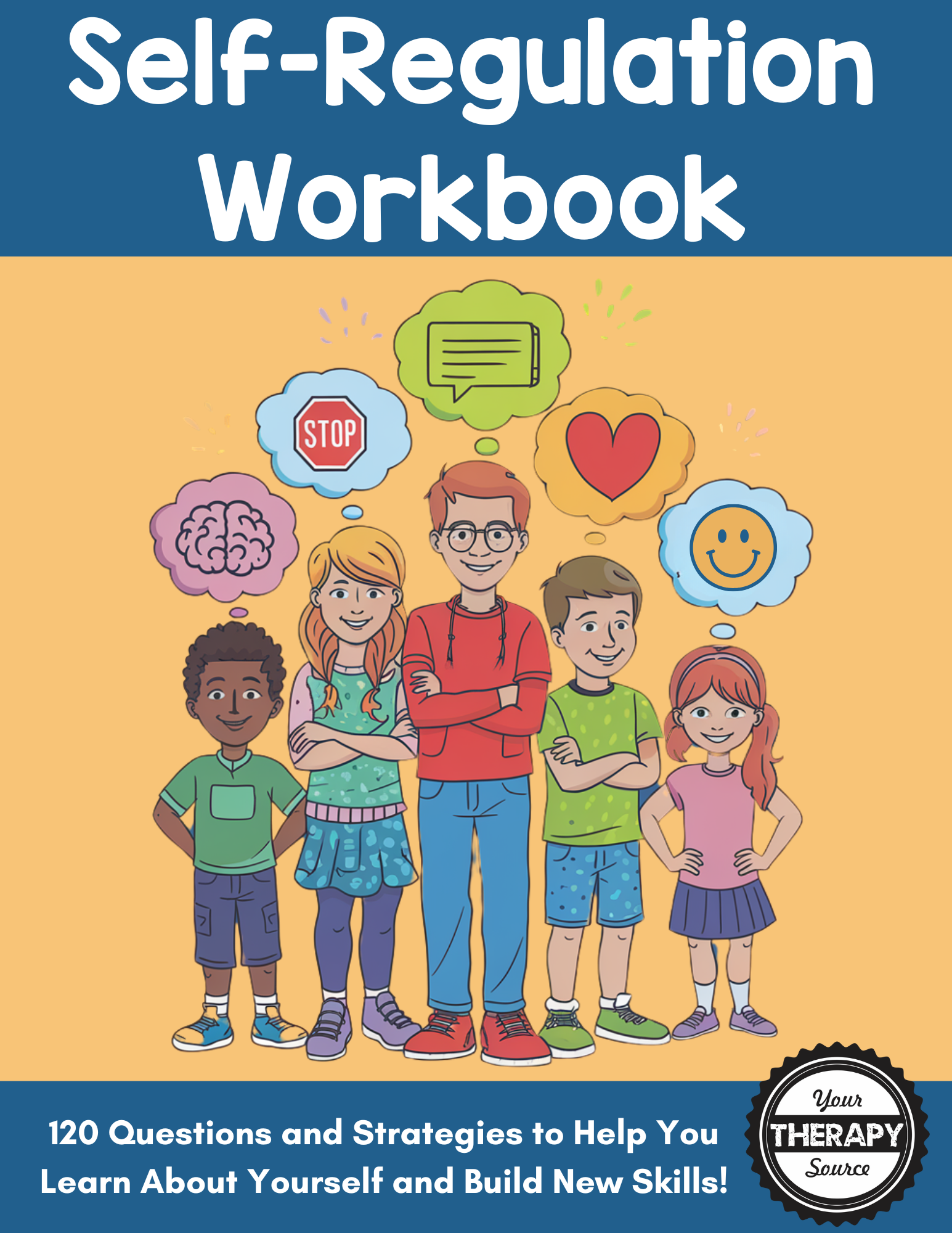How to Develop Self Regulation Skills in a Busy World
Modern life moves fast and that pace takes a toll on our ability to self-regulate. Between packed schedules, digital distractions, and the constant pressure to perform, both children and adults are left with fewer opportunities to pause, reflect, and reset. Self-regulation, the ability to manage emotions, behavior, and attention, isn’t just a skill we’re born with; it’s something that needs time, space, and support to grow. But in today’s busy world, those conditions are harder than ever to come by. Learning how to develop self regulation skills in a busy world is so important to help our children and ourselves!
Issue #2 of Raising Self-Regulated Kids in a Busy World explores how modern lifestyles impact the developing brain and nervous system, offering realistic, research-backed strategies to help restore balance. To give you a quick starting point, we’ve created a free printable featuring 20 simple, everyday ideas to support self-regulation at home, in school, or in therapy.
You can download the FREE printable at the bottom of this post.

What is Self Regulation and Why Is It So Hard To Develop Self Regulation Skills in Our Modern World?
Self-regulation is the ability to manage our thoughts, emotions, and behaviors in ways that help us meet goals, cope with stress, and adapt to changing situations. For children, it’s a skill that develops gradually with the right mix of brain maturity, supportive relationships, and everyday practice. But in today’s fast-paced, overstimulating world, self-regulation has become harder to build. Constant digital input, jam-packed schedules, reduced opportunities for play and rest, and heightened academic and social pressures leave little room for the calm, unstructured time that growing brains need. As a result, many children (and adults) struggle to pause, reflect, and respond with intention rather than react on impulse. Supporting self-regulation in this environment means intentionally creating space for stillness, connection, and skill-building throughout the day.
Daily Routines to Support Self-Regulation
Our daily habits shape how regulated and grounded we feel. These simple changes can reduce stress and create space for calm and connection:
- Set aside unstructured time each day for play, rest, or quiet activities.
- Support healthy sleep habits with consistent bedtime routines and screen-free downtime.
- Keep mornings calm by building in extra time and avoiding rushed routines.
- Include outdoor time daily to support physical regulation, mood, and sensory balance.
- Use soft lighting and calming music to signal moments of rest or reflection.
Healthy Screen Habits to Support Self-Regulation
Technology can be overstimulating if not managed well. These ideas help create healthy digital boundaries:
- Limit screen use during transitions, mealtimes, and before bed.
- Offer tech-free zones, such as bedrooms or the dinner table.
- Delay social media use until at least age 13, and set boundaries when introduced.
- Create a quiet space for reflection, journaling, or drawing without screens.
- Support healthy sleep habits by keeping screens out of the bedtime routine.

Self Regulation Workbook – Learn About Yourself
Movement, Mindfulness & Regulation Tools
Intentional movement and quiet moments can help reset the nervous system throughout the day:
- Incorporate short movement or sensory breaks throughout the day.
- Include calming routines like mindful breathing, stretching, or nature time.
- Introduce simple mindfulness activities to build self-awareness.
- Make time for shared moments of stillness—such as sitting quietly together or going on a slow walk.
- Normalize mistakes and talk about how to handle frustration.
Building Independence & Emotional Awareness
Self-regulation strengthens when children are trusted to make choices, reflect, and learn from experience:
- Reduce overscheduling by keeping at least one open afternoon or evening each week.
- Provide choices instead of stepping in to solve problems immediately.
- Allow children to experience natural consequences when safe.
- Praise effort and persistence, not just performance or outcomes.
- Regularly check in with children to explore how they’re feeling and what might help them feel more balanced.
Download the Free Printable with 20 Tips to Help Develop Self Regulation Skills Everyday
Want to keep these strategies handy? Download your free printable: [20 Simple Ways to Support Self-Regulation Every Day], straight from Issue #2: Raising Self-Regulated Kids in a Busy World. Hang it on the fridge, keep it in your classroom, or use it as a reminder to build intentional, regulation-supporting habits into your daily life.



